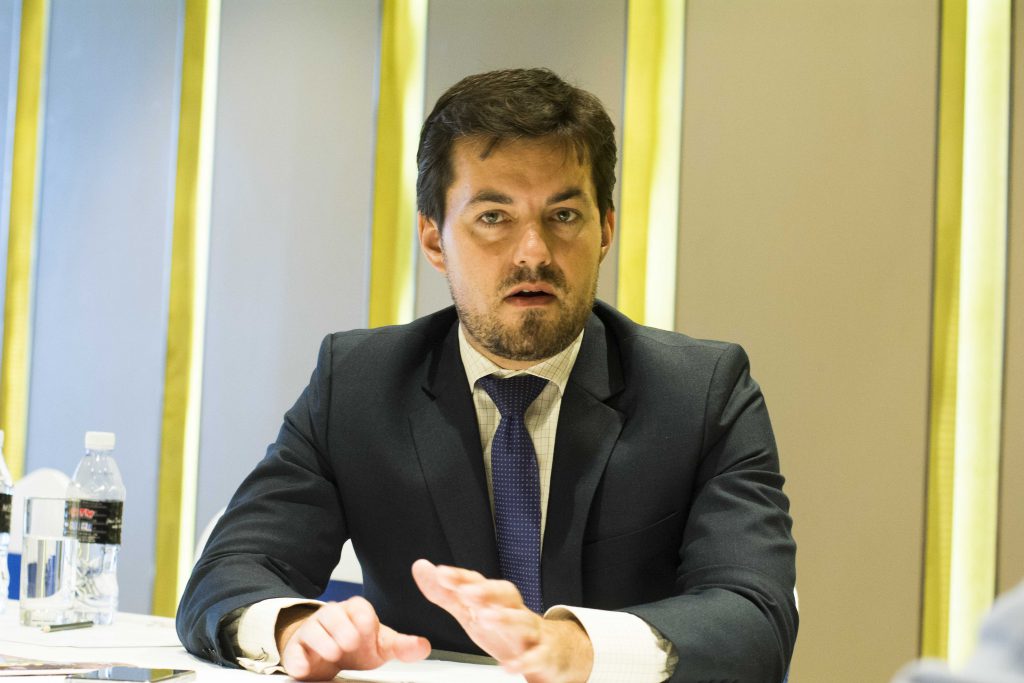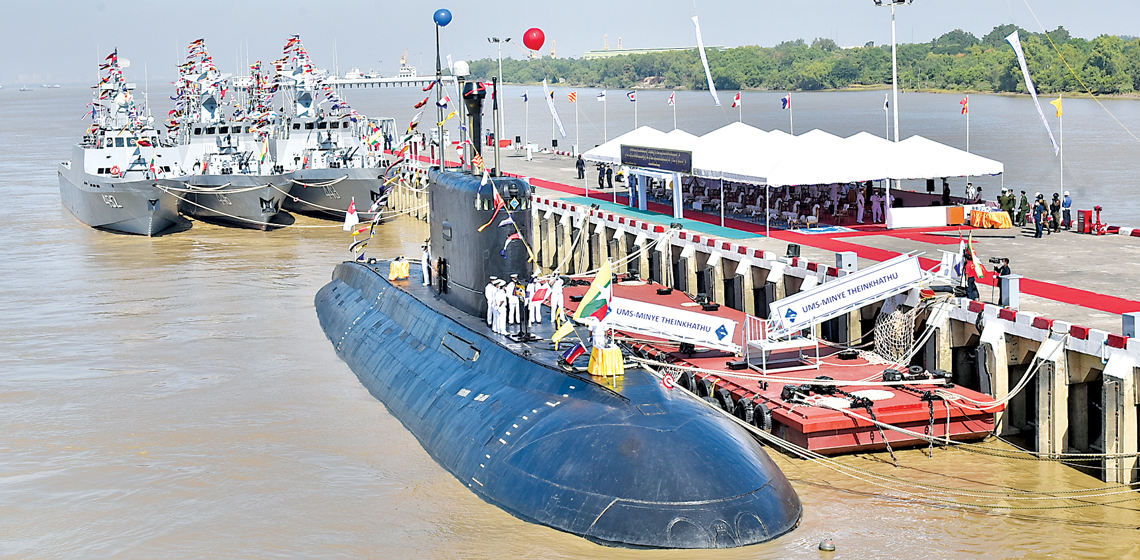ON DECEMBER 14, the European Chamber of Commerce in Myanmar, better known as EuroCham, published its second annual Business Confidence Survey. The survey found European companies had mixed feelings about the business environment and direction of the country’s economy. Frontier’s Kyaw Ye Lynn sat down with Mr Filip A Lauwerysen, the executive director of EuroCham Myanmar, to get a better understanding of how European companies see Myanmar as a place to do business.
Myanmar recently enacted a new companies law and before that a new investment law to encourage more foreign investment. What effect will these changes have, and what do businesses think about the announcement that the companies law will not come into effect until August 1, 2018?
Of course, companies want to see fast improvement of regulation. But I believe as EuroCham it’s not our position to decide or to tell the Myanmar government when to start with new legislation or the timing of such things. It’s an internal domestic decision. We respect the democratic process. We do ask for the timely announcement of legislative change and transparent announcements and smooth implementation. It’s one thing to change a new set of legislation, it’s another thing to have it properly implemented … That is something that we hope will change.
We advocate for a fairer, level playing field and by doing so the government will see its tax revenue rise, they will see more compliance, more income – which I believe is badly needed. I think the civil servants are heavily underpaid in this country, and that has a very negative impact on implementation of legislation, transparency and compliance. This is something that we hope will change.
EuroCham Myanmar has just published its Business Confidence Survey. What are the major findings?
The survey shows different results. The companies mentioned that the improvement in the regulatory environment has had a positive impact on them. But they still of course identified regulatory constraints as one of the main bottlenecks.
When it comes to, in general, the business confidence has indeed decreased a little bit. Last year, the business confident was quite higher.
The survey also mentioned several challenges for businesses, such as regulatory issues, lack of qualified labour, legal uncertainty, lack of financial infrastructure and difficulties in market penetration. How about the crisis in Rakhine state? Do you see it as a major factor in the decreased confidence levels?
I would not go that far … Of course the situation and the political instability that is being reported on the border with Bangladesh has had a negative impact on how Myanmar is viewed internationally, including in Europe. So when it comes to a company not having an experience in Myanmar and they are looking for a new investment destination, yeah it will have a negative effect. Also I have to say that it depends on the industry. There’s a difference in certain industries, like the tourism industry has been more affected than other industries.
Do European businesses still think Myanmar is a good place to invest?
As EuroCham Myanmar, we believe in the potential of this country, and we promote more investment. We think it is good for both European businesses and good for the country. Again and again, in the past it has been showcased in different countries that getting more foreign investment improves the development of the country, improve the skills, the education, the job creation, the compliance to international standards. In general, it [foreign investment] is an incentive for overall improvement in the country. And through that, it also improves political stability.
In general, I mean we can see that even in Europe, our worst times in Europe, when we were killing each other, we had very bad economic times. When we had good time we were more tolerant to each other. To quote the EU ambassador, it has been business that created the EU. It was an economic agreement on coal and steel that eventually became a political union as well.
So I think Europe is a good example how economic cooperation improves the political situation and in general the wellbeing of all its citizens. That is the position of EU business.
Finally, tell us about the EuroCham Myanmar. How many members and how many countries do you represent?
We are an umbrella chamber so basically you’re automatically a member if your headquarters is in the EU or you’re in one of the member state chambers. Most countries have a similar structure, so we work as an umbrella chamber in the sense that we cooperate when it comes to advocacy and providing a common European voice as a private sector consultation platform for the Myanmar authorities.
When it comes to the members, I think it’s more interesting to – of course, we have all the European companies as members, I think it’s about 300 – but what I think is more interesting is the advocacy group members, so we have about 70 large European companies represented in the different industry groups in Myanmar.
TOP PHOTO: Teza Hlaing | Frontier







